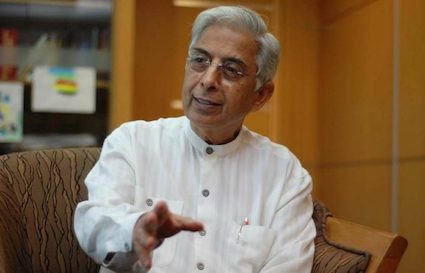
(FMT) – State assemblies and Parliament should hold their meetings as usual to respect the constitutional requirements, legal experts said today.
Constitutional law expert Shad Saleem Faruqi said to minimise danger from the Covid-19 pandemic, state assemblies could opt for video conferencing so that social distancing could be observed.
The other option was to limit the number of assemblymen convening, keeping them at a number that met the quorum.
“The government and opposition should agree to invite only enough legislators to meet the quorum. The existing proportion of government to opposition assemblymen can be maintained.
“It would then be possible for social distancing to be enforced. The state constitution must be followed in good times and bad times,” he told FMT.
All state assemblies must convene not later than six months from their last sitting. For some assemblies, the date expires either this month or May.
Parliament was last held on Dec 5 and is scheduled to reconvene on May 18, close to Hari Raya. It was earlier scheduled to be held on March 9 but was postponed by Prime Minister Muhyiddin Yassin upon taking over office.
Shad Saleem was asked to comment on the Penang government’s announcement today that its assembly would be held on April 17 and that the governor would open the first sitting as usual, but that it would last “half a day” and adjourn sine die.
Meanwhile, Gurdial Singh Nijar said state assemblies must carry on, or risk undermining the role of the separation of powers and the democratic process.
In a written reply to FMT, the former law professor said the state and federal constitutions did not say what would happen if an assembly or a sitting of Parliament were to be held after the expiry date.
By right, he said, any proceeding taking place beyond the six-month period would be rendered illegal.
“Any decision made, including laws or resolutions passed, will have no effect. They will be unlawful and can be ignored with impunity,” he said.
Gurdial said while state assemblies could make final calls on matters related to proceedings, it would only be a mockery as most legislatures were dominated by one political party.
“And they can vote to legalise the outcome of the proceedings,” he said.
He said the courts would then have to step in to decide if the assemblies had the right to convene outside the six-month period.
“The courts are the third arm of government, an indispensable player in the separation of powers’ trilogy which underpins our constitutional rule of law architecture,” he said.
Gurdial referred to the United Kingdom Supreme Court’s decision of proroguing (discontinuing) Parliament during one of the Brexit debates by its prime minister.
He said the prime minister’s decision, made by the Queen on the government’s advice, was questioned by the court.
The court, he said, later ruled that the integrity of the UK Parliament would be undermined if the executive used its power to delay parliamentary sittings for as long as it pleased.
“Is our movement control order or lockdown a good enough reason? I think not. After all, convening the meeting is not the problem.
“How it will be conducted is the real challenge. This can be dealt with by incorporating social distancing in the seating arrangements, wearing of masks, and maybe even electronic communication.
“It will no doubt require some creativity from the government. The lockdown regulations, incidentally, must also allow for this relaxation,” he said.



No comments:
Post a Comment
Note: Only a member of this blog may post a comment.